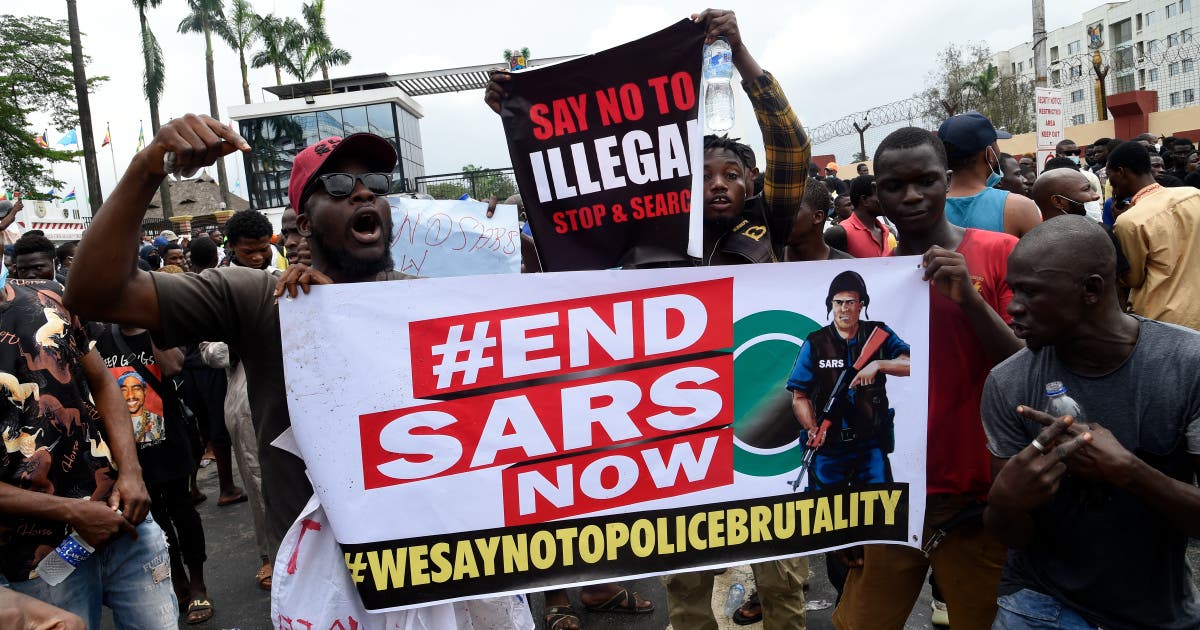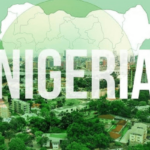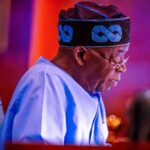It’s sad that strategic intelligence option outside of force played out in the EndSARS crisis. Nigeria must learn to raise its game in national resilience and crisis management.
The killing was avoidable with better strategic thinking and tactical intelligence. Protest is a fundamental part of any democratic experiment. Indeed, protest represents the thermometer with which the health of a democracy is gauged. In the hand of a vibrant, virile and visionary civil society, protest becomes the instrument of vigilance by which democracy is monitored. Democracy is founded on the participation of the people in their own self-government. And that participation is mediated by a regular electoral process that allows the people to choose those who will represent them in determining their well-being.
However, election through voting is just one means by which the people demonstrate their preferences in a democracy. The other is the legitimacy of protest. While voting and election are meant to facilitate an orderly and procedural transition from one administration to another, protests constitute the regular check on the health of the democratic governance. It is a right, held by the citizens, to question the policies and decisions of any incumbent government, with regard to their capacity to make lives better and, to better engage, within a stewardship relationship under a social contract.
It is in this light that we can see the #EndSARS protests that have engulfed Nigeria. To understand this protest is first to compare it with others in the established liberal democracies. When Stan Van Gundy says that “Peaceful protest is a hallmark of our democracy. It has been in impetus for social change throughout our history,” he was not definitely referencing Africa. He was speaking about the enshrined right to protest that has become a feature of democracies in liberal societies. This is why the #EndSARS protests reflects a long overdue mechanism by which social change ought to have been explored constantly in any healthy or even ailing democracy. That this type of protest is not common and regular in Nigeria is surprising and dangerous for the future of any nation that aspires to be great.
In Marxian analysis (even as I make no claim to being a Marxist), protest is inevitable. And this is because class is tied in with the type of life we live in any capitalist society. Thus, the rich and wealthy live good life while the poor and the impoverished are left at the margins of society where they have to make ends meet in agony. Poverty therefore becomes a huge motivation for social change. In Nigeria, this Marxian analysis takes on a new dimension with the entry of the youths into the revolutionary dynamics of transforming the socioeconomic and political situation of Nigeria. It was inevitable that the youth would be at the centre of this particular protest, and any other one in Africa, because the continent is presently a youthful one—a large proportion of the African population is within the age bracket of 15 to 35. Africa is a demographic paradox: it is not only a youthful continent; it has the highest incidence of youth unemployment of all the continents of the world. Put in other words, while the youth bulge in Nigeria could instigate a productivity drive that will transform democratic governance, the large statistics of youth unemployment remains the frightening indictment of any pretension to national development. And it is what has brought us thus far to this protest.
In most of my public commentaries, and especially the ones about the relationship between the youths, unemployment and the dangers involved, I have warned about this moment. And yet I am no prophet or seer. I simply had the constants of history as my warrants. Throughout history, and particularly the history of revolutions and protests, certain facts have become incontrovertible. First, there is always a tipping point when suffering, injustice and inequality becomes unbearable. When the French subjects of King Louis XVI stormed the Bastille, it was a revolutionary response to a series of national events that were tied to the arbitrariness of the French monarchy.
The American Revolution of 1776 was not different in its reaction against the British. The American colonists were concerned about the practice of taxation without a corresponding representation in the British Parliament. The American colonies were a source of taxes for Britain, despite the fact that the colonies had their own autonomous legislatures. Even after the Stamp Act of 1765, which imposed the taxes on the colonies was repealed, the promulgation of the Townshend Acts, between 1767 and 1768, further aggravated the taxation issues. The essence of the Acts was to concretise the policy that Britain had the right to tax the American colonies. By the time the Boston Massacre occurred in 1770, as a result of the reaction from the colonies against the Acts, the Revolution was just six years away.
With the Arab Spring, we arrive at a massive protest that was both transnational and modern in its deployment of media technologies. Again, the narrative remained the same: bad governance and injustices on a large scale. And the massive protest began in Tunisia, a third world country in Africa. And Tunisia shared a lot with Nigeria. The Arab Spring in Tunisia and Egypt was instigated by an insensitive leadership and an astronomical youth unemployment.
That the Arab Spring took off from Africa speaks a lot to the continent and its dynamics of poverty, inequality, unemployment and bad governance.
Statistics from the National Bureau of Statistics (NBS) states that unemployment at the second quarter of 2020 stands at 27.1% (27.7 million Nigerians). The combination of unemployment and underemployment (28.6%) is at 55.7%. The worst hit of the unemployment statistics are the Nigerian youths, 13.9 million of whom are currently unemployed.
To the extent that every democracy deserves its vigilance mechanism, to that extent we must put the current protest in its proper perspective as a legitimate reaction by a large body of the population which is only asking that its interests be put in the front burner of good governance. In my reckoning, the protest—and all such protests—is an attempt at forcing the politicians and the political elite to confront the significance of the social contract between the government and the governed. Why is any government in place if not to accede to the legitimate interests and preferences of the citizens? Every protest requires a negotiation. That is one other lesson that the study of revolutions in history teaches. The failure to negotiate the genuine and legitimate concerns of protesters always escalates. It escalated in the cases of the American and French Revolutions.
And this is where the #EndSARS falls short of a critical lesson of history. There is always a need for leadership. On the part of the protesters, a leader or a group of leaders provides the strategies and the minimum sets of demands that the government can consider. Indeed, such a leadership is needed to discern when the protest had reached that critical point before it is hijacked by unscrupulous elements that will inevitably undermine the focus of the protest. And on the part of government, there is the need for a genuine and sensitive leadership that immediately sees the provenance and significance of any protest. The stewards of the commonwealth must always listen to what the owners of that commonwealth are saying, either through voting or through protests. That is the essence of what we call democracy. The #EndSARS protest is the accumulation of 60 years of unending suffering. No political leadership should think that such a protest will suddenly end, or can be mollified with palliatives or quenched by force. In the final analysis, the protest is adamant about making Nigeria better. No government can be deaf to such a patriotic objective.
Oloapa is a retired Federal Permanent Secretary & Professor of Public Administration, National Institute for Policy and Strategic Studies (NIPSS), Kuru, Jos. ([email protected])




